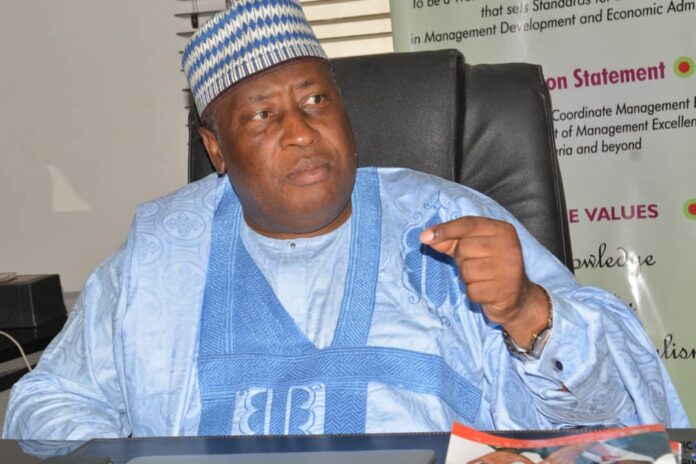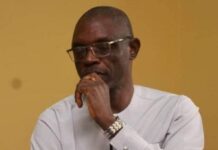Some Salient Facts about NNPC in Nigeria’s Oil/Gas Industry.
By Kabir Kabo Usman, PhD
Some of our fellow citizens are jesters and don’t mind going the whole hog to make fun of serious national issues. This category of Nigerians, however, should know that the prosperity of the country’s economy, which is largely driven by its oil and gas sector, must not be trivialized in social media debates or at tea cafes joints.
We risk undermining economic policies that are crucial to our nation’s future by spreading negativity. It’s time we shift from mere rhetoric to actions that support and uplift our nation’s economy for the benefit of both present and future generations.
One thing is certain: understanding the oil sector requires deep knowledge, foresight, farsightedness and insight. During my studies at Manchester University as petroleum Chemist both at the Master’s and Doctorate levels, I learned specifically just how intricate, volatile, uncertain, ambiguous and complex this sector is. Such kind of sectors requires compliance on international laws across many boundaries and interests.
The current debate surrounding Nigeria’s refineries exemplifies this complexity. It is a multifaceted relationship involving the regulator (Federal Government of Nigeria), the operator (Nigeria National Petroleum Corporation Limited), and the service user (eg Dangote), with international oil companies (IOCs) observing from a distance with keen interest.
But all of these issues must be addressed within a regulatory framework that ensures quality assurance, control, intervention, and improvement. The ongoing debate about Nigeria’s refineries is far more complex than it appears on the surface.
It involves a triangular relationship between the regulator, operator, and service user—namely, the Federal Government (FG), NNPCL, and Dangote.
Meanwhile, the International Oil Companies (IOCs) remain watchful, ready to ensure compliance at every turn. All concerns must be managed within a robust regulatory framework that guarantees quality assurance, control, intervention, and continuous improvement.
Discussions have largely centered on issues of monopoly, oligopoly, and competition, which are intrinsic to the oil and gas industry. But the focus should be on negotiation to secure relevant contracts at the right time, guided by demand and supply dynamics.
When it comes to granting licensing, it is imperative to ensure that there is sufficient fuel available to meet the daily needs of the country.
Licenses should only be granted to those who meet the minimum required criteria to ensure adequate supply. Such critical issues should not be debated on social media. Instead, they require the intervention of a ministerial committee that can work towards an amicable resolution.
The Nigerian project is worth every sacrifice, and it is crucial that we protect and promote our national interest with care. The world is watching, and it is our collective responsibility to protect the interests of our nation.
Beyond doubt, Engineer Mele Kolo Kyari’s leadership at NNPCL can be likened to a shepherd guiding a vital entity for Nigeria, much like the jugular vein is essential to the human body.
As a profit-driven entity, NNPCL aims to maximize returns on investment and add value without compromising communal, national, or international commitments. NNPCL is a company wholly owned, managed, and served by Nigerians—at least in the ideal sense.
It is not uncommon for such a company to draw significant attention in a nation of over 200 million people, countless civil organizations, and various expert committees. The challenge with such a diverse combination of professionals and socio-cultural perspectives is that everyone claims to be right, including those who know they are not.
As former British politician Secretary/Minister Michael Gove once remarked, “People have had enough of experts from organizations with acronyms that have got things so wrong in the past.” Many of the sharp turns we’ve taken in the past have proven detrimental. It’s important to note that not everyone in positions of power and authority is corrupt.
Testifying on Wednesday (07/8/24) before the Senate ad-hoc committee investigating alleged economic sabotage in the petroleum industry, Mele Kyari denied any involvement in the importation of sub-standard products, stating that NNPCL is committed to transparency, accountability, trustworthiness and honesty.
The CEO expressed frustration over unfair media attacks, which he believes are aimed at tarnishing the company’s reputation and creating the impression of economic sabotage leading to economic doldrums.
“We are not criminals, we are not thieves,” Kyari said. “We will protect our dignity so we can serve this country.”
Kyari also revealed that the oil and gas industry is bleeding, hinting at undisclosed issues which “they” knew that cannot be made public “until the right time comes.”
Any profit-making organization exists to serve its shareholders (in the case of NNPCL, the Nigerian people) through customer satisfaction, guided by targets with a baseline data and key performance indicators (KPIs) aligned with its vision and mission. Therefore, the only fair way to measure a company’s success is by its KPIs not inputs or outputs but desired outcomes.
For instance, assessing NNPCL’s performance (and by extension, Mele Kyari’s leadership) should be based on metrics like profit generation, transparency, and fuel availability for domestic use.
Reducing NNPCL’s performance to the cost of pump prices alone wow be intellectually lazy and inapt ; it should be evaluated in terms of daily crude oil production volume, among other indicators.
Considering Mele Kyari’s performance areas, let’s focus on three key aspects: profit generation, transparency, and accountability. Historically, NNPCL declared its first-ever profit in 2020—a milestone announced by former President Muhammadu Buhari.
“I am pleased to announce the declaration of Profit after Tax of Two Hundred and Eighty-Seven Billion Naira (N287 Billion) in Year 2020 by the Nigerian National Petroleum Corporation (NNPC),” Buhari stated.
This profit followed a reduction in NNPC’s losses from N803 billion in 2018 to N1.7 billion in 2019, culminating in a net profit declaration in 2020 for the first time in its 44-year history. Kyari, on his part, attributed this achievement to cost-cutting measures, improved efficiency, and lower borrowing rates.
Again, Premium Times, on June 16, 2020, reported that “After 43 years, NNPC publishes audited financial accounts”. This marked an unprecedented step towards transparency. The move garnered praise from both internal and external observers, including the Nigeria Extractive Industries Transparency Initiative (NEITI) and the U.S. government.
NEITI and the U.S. government commended this milestone, noting that it would attract more investors and enhance stakeholder satisfaction. Transparency in financial reporting is crucial for building trust and confidence among investors, and this historic step by NNPCL under Kyari’s leadership signals a commitment to good governance and accountability.
Read Also:
In terms of accountability, Mele Kyari has consistently shown boldness and a willingness to take full responsibility for his targets.
In March 2024, Kyari announced the completion of mechanical work on the rehabilitation of the Port Harcourt refinery. “The mechanical work at the Port Harcourt refinery has been completed. Also, crude oil has been sent to the plant.
“What is being awaited now are licensing and related processes. Officials involved in issuing these licenses are still observing the plant. Some of them arrived last month and are still checking everything. They will also need to test-run the plant, which will occur at their own pace.
They have their integrity to protect, for if anything contrary happens at the refinery, the officials might be held accountable, and their insurance firms would have to pay for any damage. So it is not entirely on our part when it comes to the takeoff of the refinery,” he said.
Kyari also promised that the Kaduna refinery would be ready by December, although it has not yet reached the same stage (with the Port Harcourt refinery).
Amid the successes recorded by the Kyari-led NNPCL management, Business Day newspaper recently concluded that the NNPCL’s “monopolistic control of the petroleum sector” is hindering the corporation from fully realizing its potential as a national asset.
The newspaper claimed that, “The corporation’s dominant position as the sole importer of petrol and the primary issuer of import licenses for diesel creates market distortions.”
This accusation from Business Day is curious, as it demonstrates a fundamental misunderstanding of the oil and gas industry.
The claim that NNPCL is the “primary issuer of import licenses for diesel” reveals how little the newspaper understands the sector.
For clarity, and to the best of my knowledge, NNPCL does not issue import licenses for diesel or any petroleum product. NNPCL, as provided by Section 64 of the Petroleum Industry Act (PIA), operates as a company in the oil and gas sector, not as a regulator.
The PIA established two regulatory agencies for the sector: the Nigerian Midstream and Downstream Petroleum Regulatory Authority (NMDPRA) and the Nigerian Upstream Petroleum Regulatory Commission (NUPRC).
It is puzzling how Business Day arrived at the notion that NNPCL issues import licenses to marketers—a clear regulatory function.
Regarding the allegation that NNPCL holds a monopoly on petrol importation, this is untrue, malicious, and misleading. When the downstream sector was deregulated on May 29, 2023, following President Bola Ahmed Tinubu’s declaration that the fuel subsidy was removed, every petroleum marketer was empowered to import the product and sell it at their chosen prices.
NNPCL only stepped in as the supplier of last resort, a role assigned to it by the framers of the PIA to ensure national energy security.
NNPCL did not push any marketer out of petrol importation to become a monopoly. Moreover, it does not appear that the company is profiting from being the sole importer of petrol—a typical objective of monopolists.
In fact, by fulfilling this role of sole importer of petrol during a time when others are unable to import the product, NNPCL has proven to be a tremendous asset to the nation—far more valuable than some would have Nigerians and the world believe.
Examining the core performance areas of transparency and profit generation, it is evident that NNPCL under Kyari’s leadership has achieved several unprecedented milestones.
As long as we view NNPCL as a profit-driven organization akin to our individual businesses, we should have no reservations about considering someone of Kyari’s caliber as the chief custodian.
While I am convinced that Kyari is doing the right thing in steering the affairs of the NNPCL, I am even more confident that he will continue to break the records he has set.
I am equally certain that there will always be noise surrounding NNPCL, as none of us are perfect, but doing our best with high levels of encouragement from society will enable the NNPCL (as a key revenue-generation company) to achieve more at a greater hight.
Finally, as we consider the unrivaled progress NNPCL has achieved under Kyari’s leadership, it becomes evident that the future of Nigeria’s oil and gas sector depends on our commitment to fostering informed discussions while eschewing misinformed debates.
The duty to safeguard and advance this crucial industry indeed rests with us, and the moment to take that decisive action is now. We should not leave the onerous job for Mele Kyari and NNPCL alone.
Those of us working on leadership and management at international level can easily associate, attribute and suggest five broad dimensions used to describe the human personality, temperament and psyche exhibited by NNPCL top management.
Starting in the 1990s, the theory identified five factors by labels as follows:
• openness to experience (inventive/curious vs. consistent/cautious)
• conscientiousness (efficient/organized vs. extravagant/careless)
• extraversion (outgoing/energetic vs. solitary/reserved)
• agreeableness (friendly/compassionate vs. critical/rational)
• neuroticism (sensitive/nervous vs. resilient/confident)
While I am convinced the management is doing the right thing, I am even more convinced that they will continue in such a trajectory to break the records he has set.
I am equally certain that there will always be noise about NNPC, as we are all not perfect and cannot be but at least doing our best with high level of encouragement from the society which will enable the company to do more.
We are holding both the President and the GCEO accountable regarding milestones with high level of esteem. I rest my case as I cannot be the most patriotic Nigeria but I must commend efforts and credit to those that is due.
In conclusion, let me recommend the following recent remarks by Reuben Adeleye Abati, Ph.D, Journalist, Politician, TV presenter and Newspaper Columnist, as a Food for Thought:
“Engineer Mele Kyari is promising that the Refineries will be completed within the tenure of President Tinubu. Well ! this is not new.
We have heard him before. I think the bigger story is that we have seen some people in the media saying: Oh Mele Kyari is the problem with the Nigerian oil and gas industry. So you have had people putting advertisement for and against…. No. Mele Kyari is not the problem.”
“There are fundamental issues with the oil and gas industry in Nigeria that have been there since the 70s and that no government has been able to address. So it is not about crucifying one individual. What Mele Kyari in my understanding is trying to do is that we can solve the problem. We will make an effort to solve the problem.
But to assume that one man is the cause of the problem will be unfair, will be wrong and will not be the reasonable way to go” – Reuben Abati lead anchor in the popular Arise TV breakfast talk show, Morning Show televised on Monday (05/8/24).
Only if the Pseudo Pundits knew.
Kabir Kabo Usman, PhD, former DG/CEO of Nigeria’s Centre for Management Development (CMD) and a Petrochemicals/hydrocarbon Chemistry expert, wrote in from Abuja.













